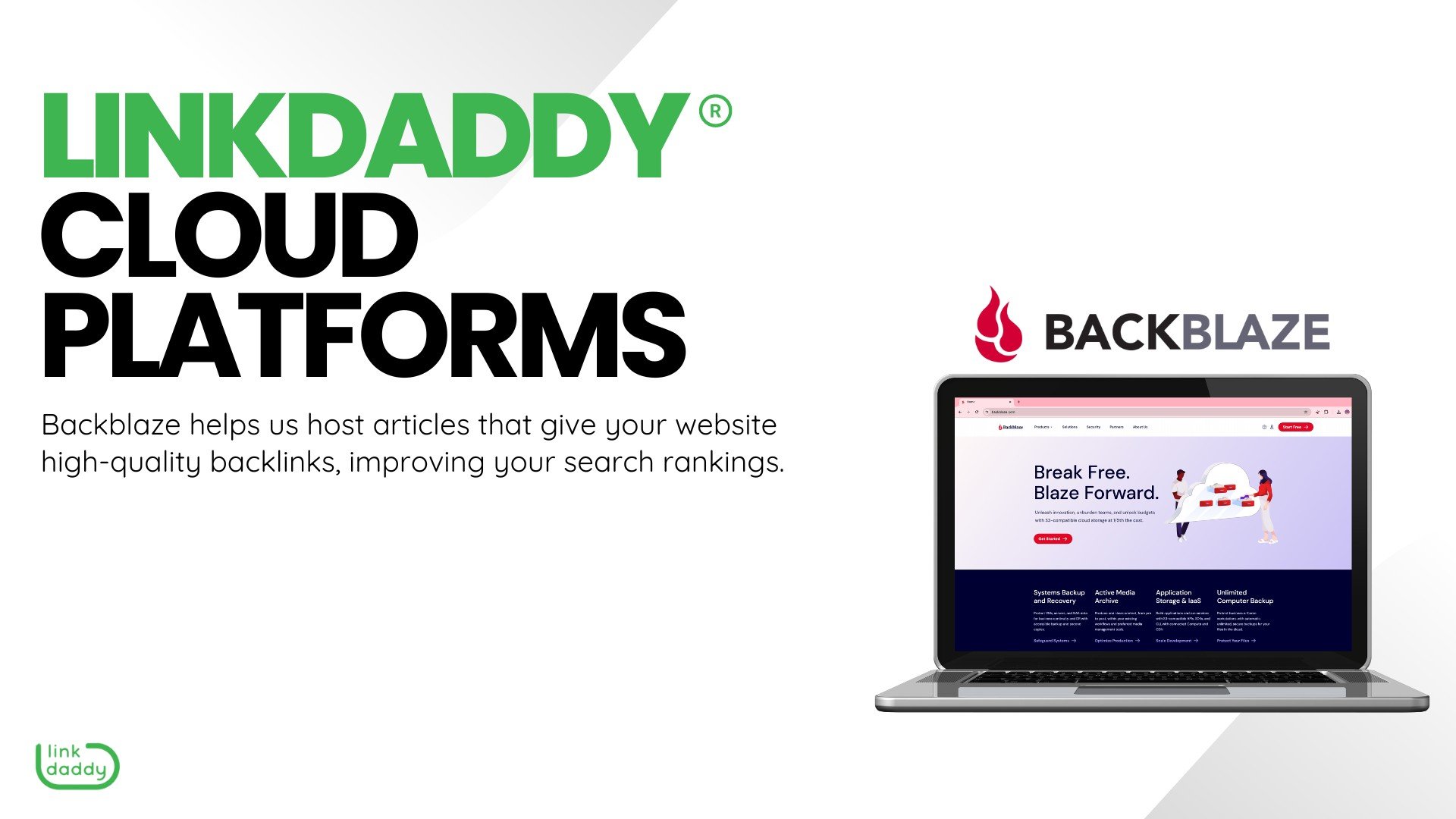Universal Cloud Service Explained: Solutions for Global Enterprises
Universal Cloud Service Explained: Solutions for Global Enterprises
Blog Article
Understanding the Various Types of Cloud Services and Their Uses
From Framework as a Service (IaaS) to Software as a Solution (SaaS), each type of cloud solution serves an unique function and offers distinct advantages. By checking out the nuanced capabilities and applications of each cloud service, one can browse the intricacies of cloud computing with precision and foresight.
Facilities as a Solution (IaaS)
Facilities as a Solution (IaaS) gives users with virtualized computer sources online on a pay-as-you-go basis. This cloud computer model supplies essential IT infrastructure such as digital equipments, storage, and networking without the need for organizations to purchase and manage physical web servers and information facilities. With IaaS, customers can scale sources up or down based upon their needs, using versatility and cost-efficiency.
Among the vital advantages of IaaS is its ability to swiftly stipulation and release framework elements, allowing businesses to react promptly to changing demands and market problems. By outsourcing facilities administration to the solution copyright, organizations can focus more on their core service activities instead of taking care of the complexities of equipment maintenance and upgrades.
Additionally, IaaS uses a high degree of reliability and protection, with carriers generally providing robust data back-up, calamity healing, and cybersecurity steps. This aids ensure that important organization procedures continue to be continuous and information continues to be secured against possible dangers. Cloud Services. On the whole, Infrastructure as a Service streamlines IT operations, improves scalability, and lowers capital investment for companies of all dimensions
System as a Service (PaaS)
Structure upon the structure of Facilities as a Solution (IaaS), System as a Service (PaaS) provides a thorough environment for programmers to create, deploy, and handle applications without the intricacies of underlying facilities management. PaaS gives a system with devices and services that enhance the growth procedure, enabling programmers to concentrate on creating code and structure applications as opposed to managing infrastructure concerns.

Software Program as a Service (SaaS)
Software as a Solution (SaaS) revolutionizes the way businesses access and utilize software program applications by providing them on a subscription basis through cloud carriers. This cloud computing version eliminates the need for companies to mount and maintain software application on private tools, as whatever is organized and taken care of centrally in the cloud.
SaaS provides a cost-effective solution for businesses as they just pay for the software they utilize without the added expenses of hardware upkeep or software application updates. It likewise supplies scalability, enabling firms to conveniently change their software demands based on their demands.
Additionally, SaaS applications can be accessed from any tool with an internet link, promoting cooperation and flexibility amongst remote teams. Security is a top concern in SaaS, with carriers executing robust steps to protect information kept in the cloud.
Popular instances of SaaS include consumer partnership management (CRM) software program like Salesforce, productivity tools like Microsoft Office 365, and partnership platforms like Google Work area. SaaS remains to acquire traction in business globe due to its cost-efficiency, benefit, and scalability.
Feature as a Solution (FaaS)
With the evolution of cloud solutions like Software program as a Service (SaaS) streamlining software application shipment, Feature as a Service (FaaS) represents a paradigm change in just how code is carried out in a serverless environment. FaaS enables developers to write and carry out private features or pieces of code in reaction to specific occasions without check my source the demand to manage the go to this web-site framework. This serverless computer version makes it possible for developers to focus solely on writing code to implement certain functionalities, without concerning themselves with the underlying facilities or web server administration.
Features are performed in stateless containers that are rotated up and down as required, ensuring ideal resource usage and cost-effectiveness. By abstracting the facilities layer, FaaS simplifies development, increases time to market, and enhances total agility in deploying cloud-native applications.
Storage as a Service (STaaS)
An essential component in cloud computing, Storage space as a Service (STaaS) provides individuals with a scalable and effective remedy for handling data storage space demands. STaaS enables organizations to store and fetch information from remote servers via the net, getting rid of the demand for on-premises equipment. This service uses adaptability by allowing individuals to pay only for the storage space they utilize, making it a cost-effective service for services of all sizes.

STaaS is specifically useful for organizations with varying storage space needs, as it provides a trusted and safe storage solution without the demand for considerable upfront investments. By leveraging STaaS, organizations can improve their data administration procedures, boost access, and improve data safety and read security in a cost-efficient manner.

Verdict
To conclude, comprehending the various kinds of cloud services and their uses is necessary for services and people seeking to take advantage of the benefits of cloud computing. Each kind of cloud service supplies one-of-a-kind benefits and capabilities, dealing with particular needs and demands. By making use of the ideal cloud solution, organizations can boost their performance, scalability, and versatility in handling their IT infrastructure and applications. It is important to evaluate the specific needs and objectives prior to choosing the appropriate cloud service for ideal efficiency.
From Framework as a Service (IaaS) to Software Application as a Solution (SaaS), each kind of cloud solution serves a distinct function and gives distinct benefits. linkdaddy cloud services. By checking out the nuanced functionalities and applications of each cloud solution, one can browse the intricacies of cloud computing with precision and foresight
With the development of cloud solutions like Software program as a Service (SaaS) enhancing software application shipment, Feature as a Service (FaaS) stands for a paradigm change in just how code is executed in a serverless setting.In final thought, comprehending the different kinds of cloud solutions and their uses is essential for people and companies looking to take advantage of the advantages of cloud computer. By using the right cloud service, companies can enhance their effectiveness, scalability, and flexibility in handling their IT framework and applications.
Report this page